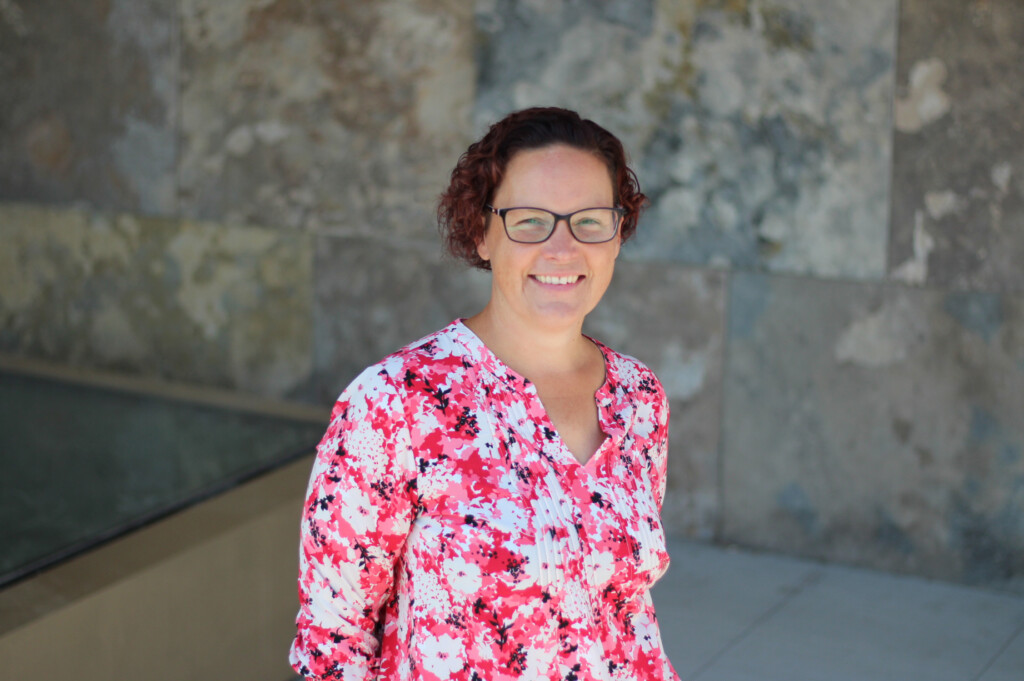Thriving in Complexity: Nuša Fain and the Human Side of Innovation
When people think of innovation, they often picture some of the world’s most prominent entrepreneurs, struck by a sudden spark of inspiration to disrupt the status quo. This suggests that progress depends on a few brilliant individuals, but overlooks the reality of how most breakthroughs happen.
For Dr. Nuša Fain, innovation is less about lone geniuses and more about the conditions that allow ideas to grow. Progress is built through shared knowledge, shaped by relationships, and sustained by the steady exchange of perspectives across communities. In a world of constant change, Nuša’s approach has never been more relevant. Her research explores how progress takes shape when organizations and individuals remain open to new ideas, strengthen partnerships, and use technology to support both innovation and personal growth.

This philosophy has guided Nuša throughout her academic journey, as she investigates how knowledge develops, who it includes, and how it moves between organizations. Her path began in Slovenia, where she studied marketing but soon became interested in how products and processes come to life when different disciplines work together. This curiosity led her to pursue a PhD in mechanical engineering, where she examined how teams connect across functions during product development. She continued her career in Glasgow, working with a heavy manufacturing firm to create an innovation space within the company.
“I built capacity in knowledge transfer, knowledge exchange, and the integration of theory and practice, which I really like because it lets me see the impact of my research,” she recalls.
These experiences convinced her that innovation is not just an academic concept but something that can transform how organizations operate and thrive in complex environments.
Rather than focusing on only the end result, Nuša investigates the systems that determine who benefits from progress and who risks being excluded. She is specifically interested in the role that inclusivity plays in shaping sustainable change. Her work is rooted in the belief that collaboration between people, organizations, and technology is essential for innovation to succeed. She emphasizes that change is never an individual journey. It emerges when people, ideas, and tools are connected in ways that strengthen resilience, advance equity, and support long-term growth.
Nuša’s current work brings this idea into practice across several fronts. One study explores how artificial intelligence is reshaping mentorship in the technology sector, asking whether AI can reduce gender bias by creating fairer and more objective matches. With tech careers shaping the future of work, ensuring equitable access to mentorship has implications for diversity and inclusion across the industry. Another project looks at how AI can support young adults in exploring career pathways, using technology to make self-discovery and planning more accessible. At a time when students face new uncertainties about the future of work, tools that expand access to guidance can play a critical role in opportunity. She also continues her research with small and medium-sized businesses, leading collaborative labs that help companies adopt digital tools and remain competitive. Since SMEs form the backbone of most economies, their ability to embrace digital transformation is vital for both economic resilience and community wellbeing. Together, these projects reflect her commitment to research that is practical, inclusive, and forward-looking.
The impact of this work extends far beyond academics. Her study on AI mentorship provides concrete strategies to make technology careers more equitable and diverse. Her work on youth self-discovery demonstrates how digital tools can empower the next generation to take charge of their futures. And her collaborations with small businesses show how applied research can directly strengthen competitiveness and adaptability. By pairing rigorous research with practical solutions, Nuša ensures her work delivers value not only for businesses but also for communities and society as a whole. Her projects respond to challenges at the intersection of technology, equity, and economic change, areas that affect us all.
Known for her curiosity and warmth, Nuša thrives in collaborative settings. She values mentorship and views teaching as a chance to explore ideas alongside future innovators. “You might laugh at this, but I’m a geek. I’ve always loved learning,” she says. “The more immersed I became in academia, the more I appreciated how collaborative the space is.” Her international background enriches both her research and her classroom, and she treasures the diverse perspectives she encounters at Sprott. Approachable and inclusive, she is regarded as both an inspiring mentor and a conduit for bringing people together.
Looking ahead, Nuša remains focused on advancing inclusive and responsible approaches to innovation. She aims to guide organizations in using artificial intelligence ethically, support small businesses in building their digital futures, and reveal how breakthroughs take shape. For her, the excitement lies not in a single discovery, but in the ongoing process of learning, reflecting, and creating together. This is something she has embodied throughout her entire academic journey. Nuša’s story reminds us that curiosity, openness, and collaboration are the strongest tools we have for meeting the challenges of a complex world.